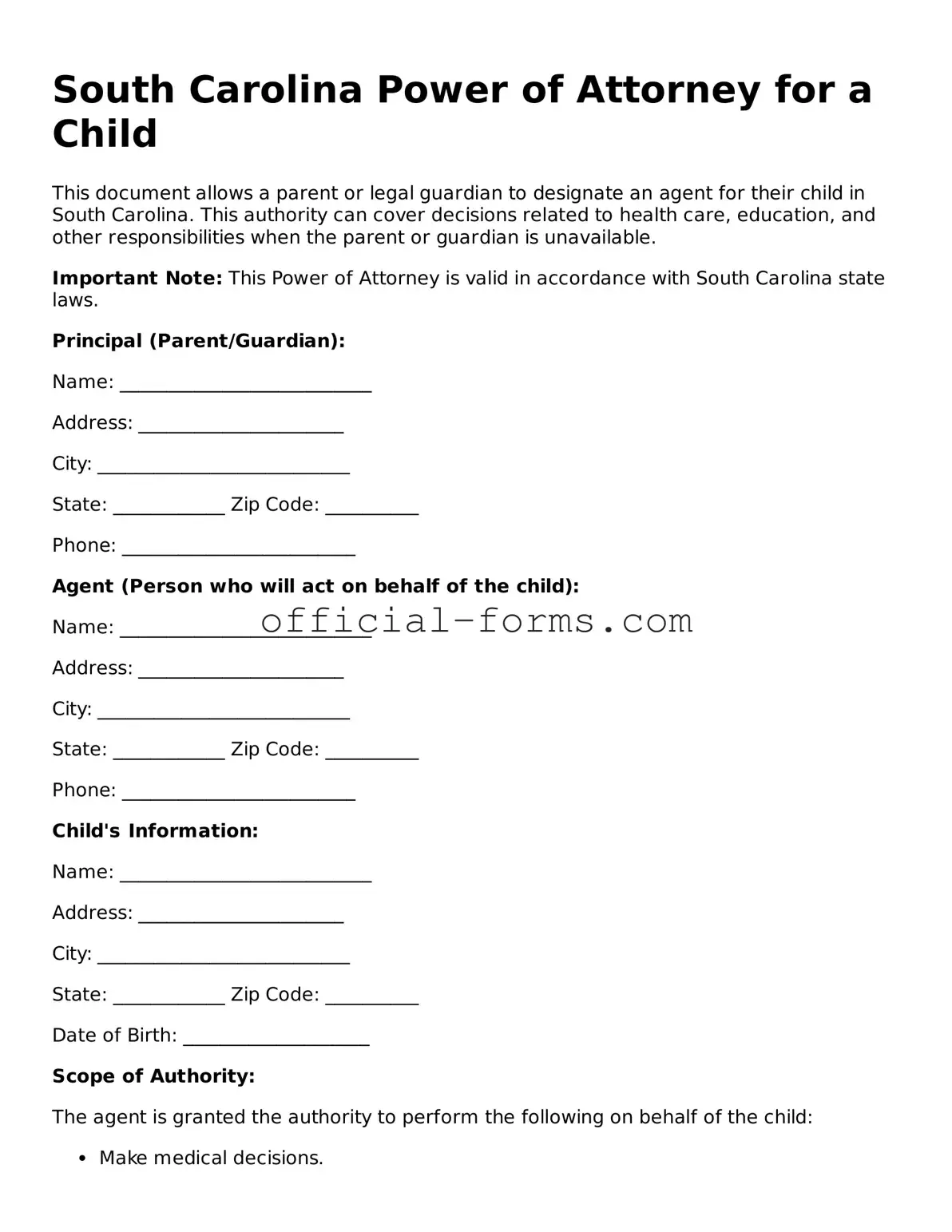Official South Carolina Power of Attorney for a Child Document
The South Carolina Power of Attorney for a Child form allows a parent or legal guardian to designate another adult to make decisions on behalf of their child. This legal document is essential for ensuring that the child's needs are met when the parent is unavailable. Understanding this form can provide peace of mind for families navigating temporary separations or other circumstances requiring alternative guardianship.
Open My Power of Attorney for a Child Now

Official South Carolina Power of Attorney for a Child Document
Open My Power of Attorney for a Child Now
Don’t leave your form incomplete
Finish Power of Attorney for a Child online quickly from start to download.
Open My Power of Attorney for a Child Now
or
➤ PDF
